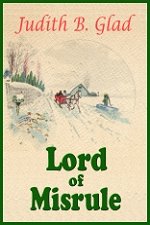 THE BIRTH OF APHRODITE:
THE BIRTH OF APHRODITE:- The dismemberment of Uranus led to the the birth of Venus(Aphrodite), who rose from a foam in the sea that was caused by the "members" of Uranus falling into the ocean. Venus Anadyomene,"Anadyomene" meaning "rising from the sea"; this title was used for Botticelli's painting. On the Simpsons episode The Last Temptation of Homer, Homer hallucinates The Birth of Venus upon first meeting his new female co-worker, prompting one of the Zephyrs in the hallucination (who is portrayed by another coworker) to ask, "What's the matter, Homer? Ain't you ever seen a naked chick riding a clam before?"
- Aphrodite - the mother of Eros: According to tradition, Eros was principally the patron of male love, while Aphrodite ruled men's love of women. Thus his statue could be found in the palaestras, one of the principal venues for men to associate with their beloveds, and it was to him that the Spartans sacrificed before battle. Meleager records this role in a poem preserved in the Greek Anthology: "The Cyprian queen, a woman, hurls the fire that maddens men for women; but Eros himself sways the passion for males." (Mousa Paidiké, 86)
- Aphrodite - The Greek Goddess Aphrodite has numerous equivalents: Inanna (Sumerian counterpart), Ishtar (Babylon), Astarte (Syro-Palestinian), Turan (Etruscan) and Venus (Roman). She has parallels to Indo-European dawn goddesses such as Ushas or Aurora.
- Eros was a power that had no body that was born to form through Aphrodite.
- Eros wafts Psyche off a cliff, instead of killing her as was his mother's bidding, and sets her down in his own castle.
- Worship of Eros was uncommon in early Greece, but eventually became widespread. He was fervently worshipped by a fertility cult in Thespiae, and played an important role in the Eleusinian Mysteries. In Athens, he shared a very popular cult with Aphrodite, and the fourth day of every month was sacred to him.
- The soul's symbol is a butterfly.
- Read the Symposium
- Aristophanes - created the idea of a soulmate. Originally humans were combined of 4 arms, 4 legs, and a single head made of 2 faces, but Zeus feared their power and split them all in half, condemning them to spending their lives searching for the other half to complete them. This theory was presented as a half-serious story by Aristophanes in Plato's Symposium, after all the participants at the Symposium ("drinking party") were charged to philosophize on the topic of love.
- Hetaera - In ancient Greek society, hetaerae were independent and sometimes influential women who were required to wear distinctive dresses and had to pay taxes. Composed mostly of ex-slaves and foreigners, these courtesans were renowned for their achievements in dance and music, as well as for their physical talents. There is evidence that, unlike most other women in Greek society at the time, hetaerae were educated. It is remarkable that hetaerae not only were the only females who would actively take part in the symposiums, but also that their opinions and beliefs were respected by men. Some similarities have been found between the ancient Greek hetaera, the Japanese geisha, and the Korean kisaeng, complex figures that are perhaps in an intermediate position between prostitutes and entertainers.
- Erotic Possession - Aphrodite's affect.
ANTIGONE:
- Haemon ("bloody") (or Haimon) - Haemon and Creon compleat the Old vs. Young conflict that Steiner speaks of on pg. 242.
- Turgenev - Fathers and sons - The title of this work in Russian is Отцы и дети (Ottsy i Deti), which literally means "Fathers and Children"; the work is often translated to Fathers and Sons in English for reasons of euphony. The fathers and children of the novel refers to the growing divide between the two generations of Russians, and the character Yevgeny Bazarov has been referred to as the "first Bolshevik", for his nihilism and rejection of the old order. Turgenev was born into a landed and wealthy family in Oryol, Russia, on October 28, 1818. His father Sergei Nikolaevich Turgenev, a colonel in the Imperial Russian cavalry, died when he was sixteen, leaving Turgenev and his brother Nicholas to be brought up by their abusive mother, Varvara Petrovna Lutovinova.
- Dostoevsky - Brothers Karamazov - The novel explores the existence of God, the nature of truth, and the importance of forgiveness through the actions of its characters. Sigmund Freud called it "The most magnificent novel ever written" and was fascinated with the book for its Oedipal themes.



No comments:
Post a Comment